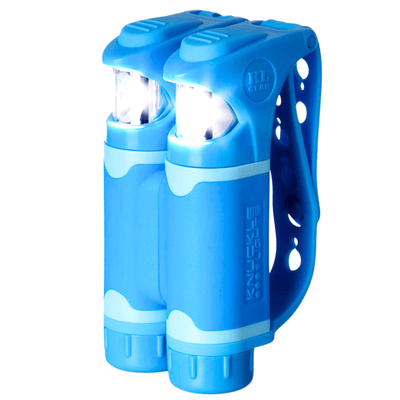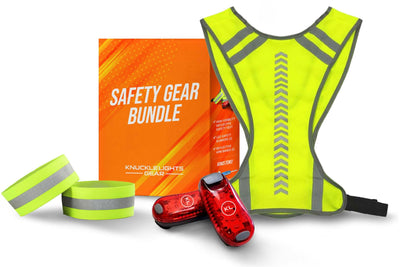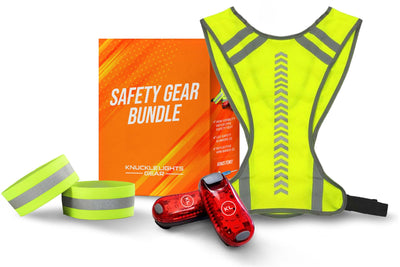Introduction to 10K Races
Are you ready to take your running journey to the next level? If you've mastered the 5K and are looking for a new challenge, a 10K race might be just what you need. In this article, we'll explore the world of 10K races, the numerous benefits they offer, and the compelling reasons why you should consider participating in one.
Physical Benefits of Running a 10K
Participating in a 10K race offers remarkable advantages for your physical fitness. Running this distance is a superb method to enhance your cardiovascular health, as it promotes a stronger heart and better circulation. Moreover, a 10K race is an effective means to build endurance and stamina, which can be immensely beneficial for other aspects of your life, such as daily activities and overall vitality. Additionally, running a 10K also helps in toning and strengthening your muscles, particularly in the lower body, making it a holistic approach to improving your physical well-being.
Mental Benefits of Running a 10K
Participating in a 10K race extends its benefits beyond the physical realm, having a profound impact on your mental well-being as well. Running, in general, is renowned for its stress-reduction capabilities. When you hit the pavement for a 10K, the endorphins released can significantly alleviate stress and provide a sense of relaxation and well-being. Moreover, the meditative aspect of running often leads to increased mental clarity. Many runners find that the rhythm of their strides allows them to process thoughts and find solutions to problems more effectively.
Running a 10K can also be a powerful confidence booster. Setting a goal, committing to training, and ultimately crossing the finish line can enhance your self-esteem and self-assurance. The sense of accomplishment derived from completing a 10K race can spill over into other areas of life, encouraging you to take on new challenges and face them with a newfound sense of belief in your abilities. In this way, a 10K race becomes not just a physical feat but a mental and emotional triumph as well.
Social Aspects of 10K Races
Participating in a 10K race offers a unique opportunity to experience a sense of community and camaraderie that is truly remarkable. Runners from diverse backgrounds come together at these events, sharing a common passion for running. The atmosphere is often electric, with an air of excitement and anticipation, as participants bond over their shared dedication to the sport.
Many 10K races also feature cheering crowds of spectators who provide encouragement and support to the runners, further enhancing the feeling of togetherness. You'll find that fellow participants, regardless of their skill level, are incredibly supportive, and the spirit of camaraderie extends to both beginners and seasoned athletes alike. It's not just a race; it's a shared experience where everyone celebrates each other's achievements and milestones. This sense of community is one of the most rewarding aspects of 10K races, making them more than just a physical challenge but a social and emotional journey as well.
Preparing for a 10K Race
Before embarking on a 10K race, it's crucial to ensure that you're adequately prepared for the journey ahead. Proper preparation sets the stage for a successful and enjoyable race day. This entails several key steps, starting with selecting the right race that aligns with your fitness level and goals. It's essential to create a well-structured training plan that includes a gradual increase in mileage to prevent injury and build endurance. Additionally, investing in the appropriate running gear, from comfortable shoes to moisture-wicking apparel, ensures you'll be equipped for a comfortable and efficient run.
Nutrition and Hydration
The correlation between your dietary choices and race performance is undeniable. What you eat and drink plays a pivotal role in determining how well you perform during a 10K race. Proper nutrition and hydration are the fuel that powers your body through the entire race, making it crucial to pay careful attention to what you consume in the days leading up to the event. Carbohydrates, in particular, are essential as they provide the energy necessary to sustain your effort over the 10-kilometer distance.
Hydration is equally critical. Dehydration can lead to fatigue and decreased performance, so it's essential to maintain optimal fluid levels. During your training, experimenting with different foods and hydration strategies can help you determine what works best for your body. On race day, having a pre-race meal that combines carbohydrates, proteins, and healthy fats ensures that you have the energy you need while avoiding digestive discomfort. Staying hydrated throughout the race by sipping water or sports drinks at designated stations will help you maintain your energy levels and perform at your best. In essence, what you eat and drink act as the building blocks of your race performance, influencing your stamina, endurance, and overall experience.
Choosing the Right Gear
The importance of selecting the right gear for a 10K race cannot be overstated, as it can truly make or break your race experience. Your choice of running gear impacts your comfort, performance, and overall enjoyment during the race. One of the most critical components is your running shoes. Ensuring they provide the right fit, support, and cushioning for your feet can prevent discomfort, blisters, and injuries during the race. It's advisable to invest in high-quality moisture-wicking apparel that keeps you dry and comfortable, reducing the risk of chafing and discomfort.
Accessories like moisture-wicking socks, a well-fitted sports bra, and a reliable GPS watch can enhance your race experience by providing support, preventing friction, and helping you monitor your performance. Additionally, choosing appropriate attire for the weather conditions on race day is essential. Layering allows you to adapt to temperature fluctuations, and don't forget essentials like a good hat or sunglasses for sun protection. In essence, your gear is your ally in ensuring that you have a smooth and enjoyable race day, so take the time to select and test your gear in advance to avoid any unpleasant surprises during the race.
Common Challenges and How to Overcome Them
Running a 10K, while incredibly rewarding, indeed comes with its set of challenges. In this section, we'll delve into these hurdles and provide practical solutions to overcome them. Injuries are a common concern for runners, which can often be avoided with proper warm-ups, cool-downs, and incorporating strength and flexibility exercises into your training plan.
Pacing is another critical aspect of a successful 10K race. A common mistake is starting too fast and burning out before the finish line. Strategies such as breaking the race into segments and maintaining a steady rhythm can help you maintain an efficient pace. Furthermore, there are inevitable dips in motivation that can occur during training. By setting specific and achievable goals, incorporating variety into your workouts, and drawing inspiration from the running community, you can reignite your enthusiasm and stay committed to your 10K journey. In essence, by understanding and proactively addressing these challenges, you can ensure a smoother and more enjoyable 10K experience.
Celebrating Your Achievement
Running 10 kilometers is a significant accomplishment that reflects your dedication, hard work, and commitment to your fitness goals. It's an opportunity to acknowledge your physical and mental strength, as well as the progress you've made throughout your training journey. Celebrations can take many forms, from simply basking in the satisfaction of your achievement to organizing a small gathering with friends and fellow runners to share your success.
The act of celebration can help boost your self-esteem and motivation, reaffirming your commitment to an active lifestyle. It's a testament to your perseverance and the effort you put into your training. So, don't forget to celebrate this milestone in your running journey and take pride in your 10K accomplishment.
In conclusion, running a 10K race can be a transformative experience, offering physical, mental, and social benefits. It's an opportunity to challenge yourself, set and achieve new goals, and be part of a supportive running community. So, why wait? Get ready to conquer the 10K, and you'll discover a world of rewards.
FAQs
1. What is a 10K race?
A 10K race is a running event covering a distance of 10 kilometers, which is equivalent to approximately 6.2 miles.
2. Do I need prior running experience to participate in a 10K race?
While prior running experience is helpful, 10K races are accessible to runners of various skill levels, including beginners.
3. How long does it take to prepare for a 10K race?
The time needed to prepare for a 10K race varies depending on your current fitness level and goals. Typically, a few months of training is sufficient.
4. Are there age restrictions for 10K races?
Most 10K races have age categories, ensuring that participants of all ages can take part.
5. Can I run a 10K race for charity even if I'm not an experienced runner?
Absolutely! Many charity-focused 10K races welcome participants of all running abilities, and it's a great way to support a good cause while getting fit.
























